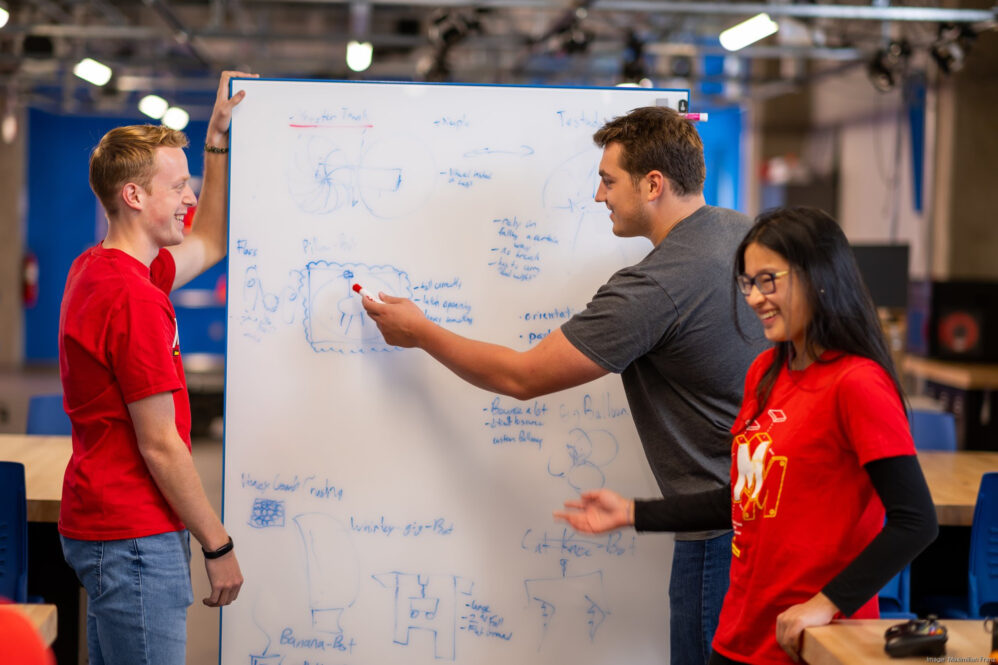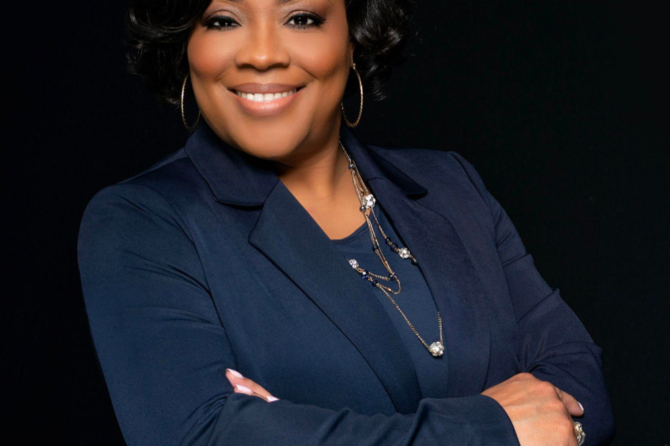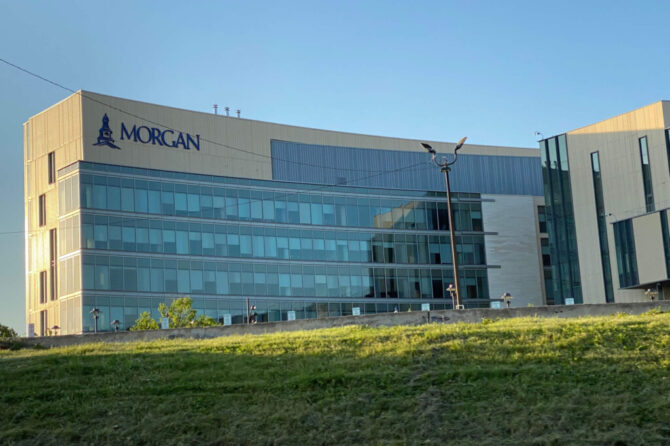WASHINGTON BUSINESS JOURNAL: The teams with the most promising business plans could land up to $2 million in funding.
Students brainstorm engineering and startup ideas in the E.A. Fernandez IDEA Factory.
The University of Maryland, College Park is launching a new program in which an A+ could come with more than credits, it could mean founding a startup with up to $2 million in investment.
xFoundry@UMD program is a 15-month business development curriculum for students that was inspired by the million-dollar tech innovation challenges sponsored by the nonprofit XPRIZE Foundation.
The program will be led by Amir Ansari, an entrepreneur with 60-plus patents and whose family was the principal sponsor behind the 2004 Ansari XPRIZE that awarded $10 million to the creators of the first reusable manned commercial spacecraft, which went on to become a prototype for Virgin Galactic.
“We’re giving [students] an idea, we’re giving them a guided path and a safety net to explore and experiment and collaborate and use that inherent energy and talent to solve a grand challenge,” Ansari, the co-founder and inaugural executive director of the university’s collaborative tech lab space, the E.A. Fernandez IDEA Factory, said.
The program goes through four phases: Xplore, where the business challenge for students is voted on and decided by faculty and investors; Xperiment, where 45 students learn the mindset of an entrepreneur and build teams, a business plan, and a pitch to advance to the next stage of competition; Xcelerate, where teams build a prototype, with the best of teams potentially selling their product and working with instructors and business mentors to prepare for the competition finale; and Xecute, where the final event is held and a winning team receives between $250,000 to $2 million in investment. Upon graduation, the winning team members become co-founders working on the venture’s product team, complete with a salary and equity stake.
The funding for the program comes from the university and instruction will come from the university’s Academy of Innovation and Entrepreneurship, with help from the business, communications, engineering and public health schools.
Where the investment in the prospective startups will come from is less clear, but could include a pool of alumni, local venture capitalists and small-business lenders, according to Ansari.
Success for the startups spinning out of xFoundry will be determined the same way as any other business trying to get funding from venture capitalists. Is the company profitable? Does it have a good product? And, most importantly, are its founders the right fit?
“if you have a good team, it doesn’t matter what problem you face, you could solve anything,” Ansari said. “And that’s really what we want them to understand, that they have to build a good, solid collaborative environment.”










